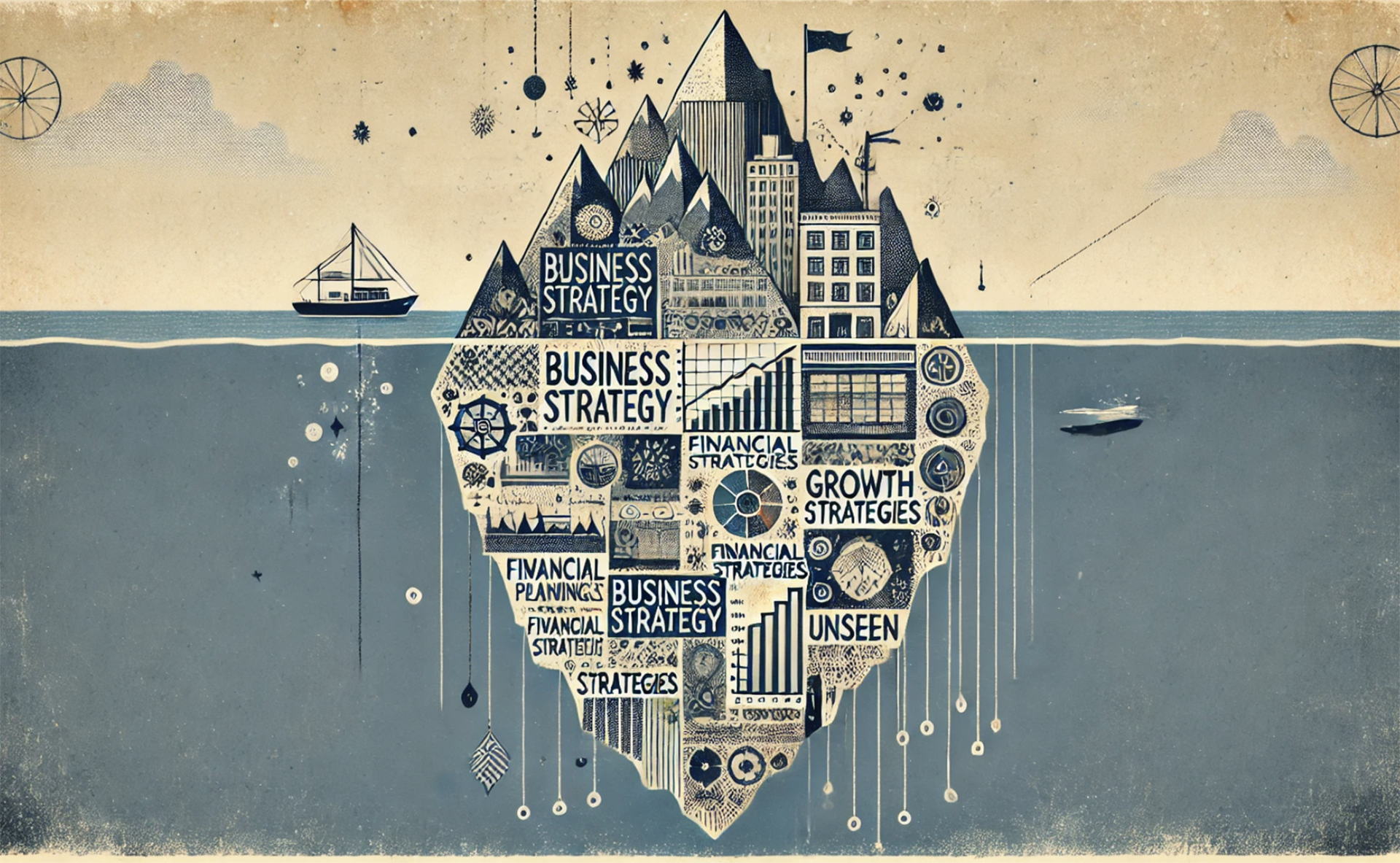Business consulting helps organizations improve performance, solve problems, and make better decisions. As a consulting firm, your role extends beyond problem detection, becoming the architects of solutions, activators of change, and mentors guiding businesses to implement necessary transformations.
Whether you're operating in marketing, finance, or operations, your choice of business model shapes your operation's core, client engagement, and growth potential. It's crucial not to pledge allegiance to a model mindlessly. Before committing to a business model, you should familiarize yourself with standard consulting models and emerging trends and strategies.
The Most Common Consulting Firm Business Models
Depending on your niche, area of expertise, and goals, you may benefit from some of the most common business models that consulting firms employ.
Traditional Consulting Model
In the past, most consultancy firms relied on a traditional consulting business model, where individual consultants would work on one-off projects and specific client initiatives. That consultant identifies areas where the client’s operations could be improved and proposes solutions. If the client’s data is thorough and easily accessed — and the consultant’s expertise is a good fit — the traditional consulting model can still be valuable. Today, however, some businesses prefer newer and emerging consulting models that offer ongoing relationships and continued collaboration.
Freelance Consulting Model
Freelance consultants most commonly work solo or with a small team of independent contractors and collaborators. Instead of prioritizing client quantity, freelance consultants provide specialized, high-dollar services to a manageable client roster. However, since this model depends on your constant presence, it’s harder to strike an agreeable work-life balance.
Agency Consulting Model
For this model, think of your typical consulting firms or agencies. Going the agency consulting route often means focusing more on management and delegation than the day-to-day needs of client projects and campaigns. Instead, you’ll leverage a team of consultants at the associate, junior, and senior levels to handle most client-facing responsibilities.
Productized Consulting Model
Most commonly, this model develops as an extension of one of the prior three models. A productized consulting model focuses on providing services presented as products with predetermined, set prices. In return, the consulting firm offers its clients clearly defined deliverables. This model sometimes requires much repetition, with less client-specific, customized work.
Emerging Consulting Business Models
Alongside a few more recognizable consulting business models are several emerging trends that could continue to alter the industry landscape.
Collaborative Consulting
Collaborative consulting takes the diverse skills of industry experts and applies them to mutually defined problems to find the most effective solutions. While this can be a more resource-intensive approach, it can generate some of the most significant returns by pulling in several experts. Collaborative consulting can include low fixed and high variable costs, and it also involves pulling in knowledge and data from other consultancies and companies.
Continuous Consulting
Continuous consulting marries data analytics and subscription-based services to develop an ongoing consultancy platform for short- and long-term needs. This model combines consulting with data insights to generate recurring, continuous business opportunities. It often requires a high degree of interaction between client and consultant and the delivery of new services to an existing client base.
Instant Consulting
While many consultancy models focus more on long-term, foundational adjustments that can steer a brand to success, other consultants work to provide immediate wins to their clients. Instant consulting works best for projects where consultants may not require extensive research to provide their insights and expertise. This model can deliver immediate, measurable benefits, even at the beginning of a project.
Though these consulting business models are still newer to many, they’re on the rise within the industry. As technology intertwines itself more with consulting, instant, continuous, and collaborative models will likely continue to grow in popularity. For more information on these consultancy models, Sioo’s research provides further context.
Simple Time Tracking Solution for your Consulting Agency
How do you choose a suitable business model for your consulting firm?
Before taking on clients and starting networking, you should define your consulting firm strategy more clearly and understand how that could influence your consultancy.
Assess your expertise
What are you good at? Do you have a specific niche? Are you certified, licensed, or otherwise professionally recognized? Your skill level can play into your chosen business model. For instance, if your expertise is highly specialized and high-value, the traditional consulting model may suit you best.
Define your target market
There’s a gulf between a startup business owner and a corporate C-suite, so you should determine who you’ll consult and what value you can offer them. For a startup, you may be able to help a business owner grow and expand. For a corporate brand, you might revitalize a failing department or lead a large-scale marketing initiative. As a result, you should consider choosing between productized and agency consulting models accordingly.
Analyze the competitive landscape
Find out precisely how competitive your chosen market is. For instance, marketing consultancy can be incredibly competitive, so you should ensure you have a diverse skill set or a robust portfolio if that’s your chosen industry for a consulting firm or even a solo business. However, you may see more success in a crowded market with collaborative consulting.
Consider your business goals
You may be interested in freelance consultancy if you want to call all the shots in your business and work with a smaller roster of high-quality clients. If you want to build an extensive consulting practice with high revenues, the agency consulting model could provide a way to engage with numerous businesses.
Evaluate scalability
As you evaluate the growth potential of your chosen consulting business model, you must consider whether it can scale to meet your evolving needs. For instance, if you start as a solo industry consultant but face high client demands due to your unique skill set, how do you plan to grow your business sustainably? One strategy is to consider models that are independent of your personal involvement. If you aim to scale your business, options like the productized consulting or agency model could be fitting solutions.
Consider the digital environment
What does your business model require of you regarding digital resources? Are you aware of the latest trends, forecasts, and projections? Your digital aptitude can help determine your consulting firm strategy.
Test and iterate
Constantly test your chosen business model's performance in real-time and adjust when needed. Gather client feedback and use current data to understand how your brand reacts to new initiatives and to find the most successful workflows. You might start with one business model and then tweak it to meet your client's needs better.
Choosing a consulting business plan can set you up for success or lead to failure. Take your time when gathering market data, audience insights, and competitive reports. Making the best decision for your brand now can save you from difficulties down the road.
What challenges and opportunities do consulting firms face in maintaining and evolving their business models?
Adjusting an existing model isn’t always the most straightforward of tasks. Similarly, maintaining that model can be problematic in the face of digital disruption and economic uncertainty. However, choosing a business model that suits your consulting firm can offer several opportunities.
Challenges
Competition
In most industries, there’s always someone else willing to do your job faster and cheaper, which is why your business model needs to reflect the value a client gets from collaboration with your brand. In short, your consulting business model must give you room to react to the competition and enhance your service offerings.
Digital Disruption
New technology can impact how clients react and spend money on your services. For instance, the ongoing expansion of AI-powered technology has shaken up several industries, making it harder for consultants to maintain existing business models without accounting for AI.
Economic Uncertainties
Fewer clients want to spend much money in the face of a potential recession or global economic crisis. Understanding how economic anxieties impact clients and your consultancy can help you navigate unsteady financial climates.
Changing Client Needs
As clients grow, expand, and adapt, so will their needs. Your clients may add new services that fall outside your consultancy scope or area of expertise.
Grow your Consulting Business with Elorus
Invoicing, Time tracking & Expense management.
Try Elorus for FREEOpportunities
New Markets
Shifting your consulting business model can allow you to tap into previously inaccessible markets. Whether developing a collaborative consultancy partnership or hiring new associates with diverse skill sets, shifting or adjusting your business model can give you more room to grow.
Digital Transformation
Evolving your consulting firm strategy can impact and improve digital transformation. Incorporating business tech platforms like Elorus into your existing business model can help you scale and adjust performance as needed using readily available data.
More Diversified Service Offerings
With the possibility of expansion and market competition comes the potential for diversification. Whether that means bringing on new staff in a consultancy firm or offering collaborative consulting with trusted partners is up to you.
Of course, these aren’t the only challenges and opportunities an industry consultant may face when shifting their business model. Using the right business software is helpful to best adapt to changing market circumstances, business needs, and client demands.
Elorus can help you boost your consulting business
Whether you’re deciding the business model of your consulting firm for the first time or adjusting your existing strategies, it’s helpful to have the backing of data. Elorus supports consulting firms by offering time-tracking, project monitoring, and reporting features so you can review consultancy performance in real-time and make adjustments as needed.





